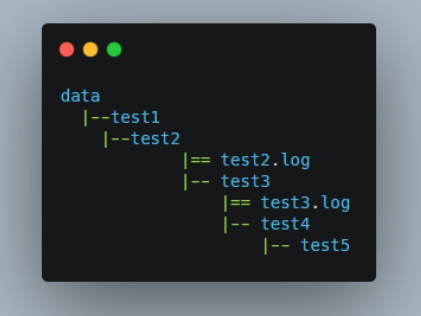使用Python调用API的方法
 发布于2024-11-14 阅读(0)
发布于2024-11-14 阅读(0)
扫一扫,手机访问
Python是一种高级编程语言,非常适合用于集成API,即应用程序编程接口。API通常是由网站和各种软件提供的接口,可以让不同的程序之间进行数据交换和通信。在Python中调用API,可以帮助我们轻松地获取数据,并将其整合到我们的应用程序中。
在这篇文章中,我们将介绍Python中如何调用API,以及在实际项目中如何应用它。我们的例子是调用OpenWeatherMap API,一个提供天气数据的在线服务。
步骤1:注册并获取API密钥
大多数API会要求你注册,然后提供API密钥以访问其数据。在OpenWeatherMap中,你需要前往网站 https://home.openweathermap.org/users/sign_up 进行注册并获取API密钥。登陆后,您会看到您的API key。
步骤2:安装requests模块
requests模块是Python中使用API的重要工具。如果从未安装过,请在终端或命令行中运行“pip install requests”来安装requests模块。
步骤3:构建API请求
通过使用requests模块中的get()方法发送HTTP GET请求来探索API。例如,要检索城市的天气数据,请使用以下代码:
import requests
url = "http://api.openweathermap.org/data/2.5/weather?q={}&appid={}"
city = "San Francisco"
api_key = "{your_api_key}"
response = requests.get(url.format(city, api_key))
if response.status_code == 200:
data = response.json()
print(data)
else:
print("Error fetching data from API")您需要将您的API key替换“{your_api_key}” 然后将城市名称代入到url中。 运行这段代码,我们即可获得OpenWeatherMap API返回的JSON格式的数据。
步骤4:解读API响应
API响应通常是在JSON格式中返回的。这些响应包含有关API请求的信息,例如成功或失败消息,以及我们需要的数据。 在上面的代码中,我们将API响应解析为JSON,并将其存储在变量“data”中。我们可以访问其中的具体数据元素,如当前的温度,风速等。
步骤5:将获取的数据应用到您的应用程序
最后,我们需要将获取的数据应用到我们的应用程序中。 这可以通过使用从API响应中提取的数据来完成。
以下是一个完整调用OpenWeatherMap API并显示天气的Python脚本:
import requests
import tkinter as tk
HEIGHT = 500
WIDTH = 600
def get_weather(city):
url = "http://api.openweathermap.org/data/2.5/weather?q={}&appid={}"
api_key = "{your_api_key}"
response = requests.get(url.format(city, api_key))
if response.status_code == 200:
data = response.json()
name = data['name']
desc = data['weather'][0]['description']
temp = data['main']['temp']
humidity = data['main']['humidity']
wind_speed = data['wind']['speed']
label['text'] = 'City: %s
Conditions: %s
Temperature (Celsius): %s
Humidity: %s
Wind Speed(kmph): %s' % (name, desc, temp-273.15, humidity, wind_speed)
else:
label['text'] = 'Error fetching data from API'
def display_weather():
city = city_entry.get()
get_weather(city)
root = tk.Tk()
canvas = tk.Canvas(root, height=HEIGHT, width=WIDTH)
canvas.pack()
frame = tk.Frame(root, bg='#80c1ff', bd=5)
frame.place(relx=0.5, rely=0.1, relwidth=0.75, relheight=0.1, anchor='n')
city_entry = tk.Entry(frame, font=40)
city_entry.place(relwidth=0.65, relheight=1)
button = tk.Button(frame, text="Get Weather", font=40, command=display_weather)
button.place(relx=0.7, relheight=1, relwidth=0.3)
lower_frame = tk.Frame(root, bg='#80c1ff', bd=10)
lower_frame.place(relx=0.5, rely=0.3, relwidth=0.75, relheight=0.5, anchor='n')
label = tk.Label(lower_frame, font=('Courier', 18))
label.place(relwidth=1, relheight=1)
root.mainloop()这个Python脚本使用TKinter库构建了一个简单的GUI,允许用户输入城市名称,然后在屏幕上显示有关该城市的天气数据。 这正是API调用的核心思想——与其他应用程序通信获取数据,然后在您的应用程序中使用它。
结论
在Python中,使用API获取数据非常简单。步骤包括注册并获得API密钥,安装requests模块,构建API请求,解析API响应和将数据用于您的应用程序中。通过调用API,您可以轻松获取任何您需要的数据, 并将其整合到您的Python应用程序中。
下一篇:理解贝叶斯方法和贝叶斯网络的概念
产品推荐
-

售后无忧
立即购买>- DAEMON Tools Lite 10【序列号终身授权 + 中文版 + Win】
-
¥150.00
office旗舰店
-

售后无忧
立即购买>- DAEMON Tools Ultra 5【序列号终身授权 + 中文版 + Win】
-
¥198.00
office旗舰店
-

售后无忧
立即购买>- DAEMON Tools Pro 8【序列号终身授权 + 中文版 + Win】
-
¥189.00
office旗舰店
-

售后无忧
立即购买>- CorelDRAW X8 简体中文【标准版 + Win】
-
¥1788.00
office旗舰店
-
正版软件
- Java语言中的测试工具介绍
- Java是广为人知的编程语言之一,而随着软件开发过程中的复杂性不断提高,测试也变得越来越重要。在Java开发中,测试工具可以帮助开发人员更准确、高效地进行软件测试。本文将介绍一些常见的Java测试工具。一、JUnitJUnit是Java中最流行的单元测试框架之一。它是基于Java语言的,可以很容易地对Java程序进行单元测试。JUnit定义了一套规范,可以在
- 6分钟前 单元测试 测试框架 Java测试工具 0
-
正版软件
- Java缓存机制的核心原理和应用场景深入剖析
- 深入了解Java缓存机制:探索其核心原理和应用场景引言:在软件开发中,缓存是一种常见的优化手段,用于提高系统的性能和响应速度。Java作为一种广泛使用的编程语言,提供了丰富的缓存机制,开发者可以根据不同的场景选择合适的缓存方案。本文将深入探索Java缓存机制的核心原理和应用场景,并给出相应的代码示例。一、缓存的概念和作用缓存是指将计算结果或者数据临时存储在高
- 11分钟前 应用场景 核心原理 Java缓存机制 0
-
正版软件
- 使用Nginx配置开启HTTP/2,提升网站访问速度
- Nginx开启HTTP/2配置,加速网站访问随着互联网的迅速发展,网站访问速度对用户体验的重要性越来越高。为了提升网站的性能和加速访问速度,很多网站都采用了HTTP/2协议。而Nginx作为一个高性能的Web服务器,也支持HTTP/2协议,并且配置起来非常方便。本文将介绍如何使用Nginx开启HTTP/2配置,加速网站访问。一、系统准备首先,确保你已经安装了
- 26分钟前 nginx HTTP/ 加速 0
-
正版软件
- Java语言实现微信小程序的概述
- 微信小程序是一种轻量级的应用程序,可以在微信平台上运行,不需要下载安装,方便快捷。Java语言作为一种广泛应用于企业级应用开发的语言,也可以用于微信小程序的开发。在Java语言中,可以使用SpringBoot框架和第三方工具包来开发微信小程序。下面是一个简单的微信小程序开发过程。创建微信小程序首先,需要在微信公众平台上注册一个小程序。注册成功后,可以获取到
- 41分钟前 开发 小程序 Java 0
-
正版软件
- Spring Boot的安全认证和授权管理的实现方法有哪些?
- 随着互联网的发展,应用程序的安全性变得非常重要,每个程序员都需要关注安全问题。由于Spring框架广泛应用于大型企业级应用程序中,因此SpringBoot是一个非常流行的选择来开发Web应用程序。在本文中,我们将了解如何使用SpringBoot实现安全认证和授权管理。一、认证和授权在开始讨论SpringBoot实现安全认证和授权之前,我们需要了解什么是
- 56分钟前 spring boot 安全认证 授权管理 0
最新发布
-
 1
1
-
 2
2
-
3
- Vue组件中如何处理图片预览和缩放问题
- 395天前
-
 4
4
- Python实战教程:批量转换多种音乐格式
- 566天前
-
5
- WebSocket协议的优势与劣势分析
- 396天前
-
 6
6
-
7
- java动态代理实例代码分析
- 566天前
-
 8
8
-
 9
9
- java io文件操作删除文件或文件夹的方法
- 563天前
相关推荐
热门关注
-

- Xshell 6 简体中文
- ¥899.00-¥1149.00
-

- DaVinci Resolve Studio 16 简体中文
- ¥2550.00-¥2550.00
-

- Camtasia 2019 简体中文
- ¥689.00-¥689.00
-

- Luminar 3 简体中文
- ¥288.00-¥288.00
-

- Apowersoft 录屏王 简体中文
- ¥129.00-¥339.00